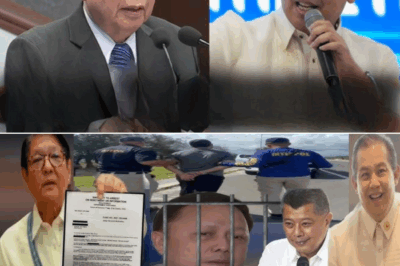Arnel Pineda, the internationally recognized lead vocalist of Journey, is now facing one of the most serious challenges of his life—and it has nothing to do with music. A warrant of arrest has been issued against him in connection with a case filed under the Anti-Violence Against Women and Their Children Act (RA 9262), brought forward by his estranged wife.

This isn’t just a private matter anymore. The case has gone public, shaking fans and drawing widespread attention to what his wife claims was a long-standing pattern of emotional and psychological abuse.
The Warrant and Missed Arraignment
The legal trouble began when Pineda reportedly failed to attend his scheduled arraignment. As a result, the court issued a bench warrant for his arrest. A bail amount was set, but the court’s decision makes one thing clear: the case is officially moving forward, whether or not the singer is ready to face it.
This isn’t just a formality—it signals that the accusations are serious enough in the eyes of the law to proceed with trial. The case will now push through with or without his cooperation unless legal remedies are granted.
Inside the Complaint: What His Wife Alleged
According to the complaint filed, the abuse allegedly began even before they were married. The two began living together in 2003 and officially tied the knot in 2008. But instead of building a peaceful home, the complainant claims the relationship was plagued by emotional cruelty and psychological trauma.
Among the key accusations:
Verbal Abuse and Control – She describes years of being shouted at, insulted, and emotionally manipulated.
Public Humiliation – The complaint includes claims that she was ridiculed in front of others, damaging her self-worth.
Infidelity – Allegations of affairs surfaced during the relationship, including after they were married. These discoveries were reportedly made through messages and other evidence that left her devastated.
Emotional Neglect and Dismissal – She says she tried to communicate, seek help, and save their relationship, but was consistently ignored or invalidated.
Control Over Her Life – The complaint also mentions restrictions she faced regarding decision-making, family matters, and even personal freedom.
What stands out most is the claim that much of the abuse wasn’t physical—but emotional, verbal, and deeply psychological. Under Philippine law, these forms of harm are just as punishable as physical violence.
A Long-Brewing Conflict
The relationship had reportedly been in decline for years. Despite efforts to work things out, including making business investments for their family and seeking reconciliation, the complainant says she reached a point where her mental and emotional well-being could no longer take the pressure.
Her decision to file a legal case wasn’t made lightly. It came, she says, after years of trying to keep the peace, protect their children, and salvage what they had. But in the end, she felt trapped, dismissed, and broken.
Where Things Stand Now
With the arrest warrant issued and the court recognizing the case as valid, Arnel Pineda must now respond through legal channels. The court proceedings will include presenting evidence, witness testimonies, and cross-examinations—typical in VAWC cases where emotional and psychological harm are central to the complaint.
The fact that Pineda missed his court date only intensified the urgency and seriousness of the proceedings. The judge has been firm: this case will not be delayed indefinitely.
The Bigger Picture: Abuse Without Bruises
What makes this case especially significant is its focus on emotional and psychological abuse—often invisible, but deeply damaging. Too often, society only takes action when bruises are visible or when physical harm can be proven. But laws like RA 9262 recognize that violence can take many forms.

Controlling behavior, repeated infidelity, humiliation, gaslighting, and emotional neglect are all forms of abuse that leave lasting scars—even if they don’t show up on the body.
This case, no matter the outcome, reminds us how important it is to listen to victims and not downplay their pain simply because it can’t be photographed.
Silence From Arnel’s Side
So far, Arnel Pineda has remained silent publicly. There have been no formal statements from his camp denying or addressing the accusations in detail. His failure to appear in court has only intensified speculation and criticism.
Legal observers note that once a warrant is issued, the accused is expected to appear, post bail, and participate in court proceedings. Avoiding court only raises questions, even if the accused eventually denies the allegations.
What Happens Next
The court will continue with the process. The next steps may include:
A reissued summons for arraignment
Possible arrest if Pineda remains absent
Testimonies from the complainant and possible witnesses
Evidence submission from both sides
Opportunities for cross-examination and legal rebuttal
It will be a painful process—not just legally, but emotionally—for both parties. But the truth must come out in court, where facts and testimonies matter more than reputation or popularity.
A Personal Story, A Public Conversation
This case is deeply personal. But its public nature means it carries weight for many others going through similar situations. It gives visibility to emotional abuse and sparks conversations about what justice looks like when the damage isn’t physical—but just as real.
Whether Pineda is found guilty or not, the fact that his estranged wife was able to file the case and be heard is itself a sign of how far society has come in recognizing a wider range of abuse.
Final Thoughts
Arnel Pineda has built a name around his voice—powerful, raw, emotional. But now, someone else is trying to use her voice to be heard. And this time, it’s not on a stage, but in a courtroom.
No matter the fame, no matter the legacy, every person accused has the right to defend themselves. But victims also have the right to speak up, seek justice, and demand accountability for the harm done—whether it’s physical, emotional, or somewhere in between.
The legal system will decide where the truth lies. Until then, what we can all do is listen, reflect, and recognize that violence has many faces—and that justice must serve them all.
News
Zaldy Co Inaaresto sa Japan: P12-B Assets Ipinablock ni PBBM, Hatol na Haharapin Mas Lalong Lumala
Isang malakas na dagundong sa mundo ng politika at anti-corruption ang bumulaga nitong mga nagdaang araw matapos lumabas ang balitang…
Matandang Raliyista Sinigawan si DILG Sec. Jonvic Remulla—Isang Eksenang Nagpaalab sa Publiko sa Gitna ng November 30 Rally
Sa gitna ng maiinit na protesta noong Nobyembre 30, isang hindi inaasahang eksena ang nag-viral at umani ng matinding reaksyon…
Sen. Robin Padilla Umapela Kay Kiko Barzaga: Bakit Nga Ba Umani ng Pagtanggol ang Pinakasikat na Suspended Congressman?
Sa gitna ng maiinit na balita sa politika nitong mga nagdaang linggo, muling umingay ang pangalan ni Cavite 4th District…
Grabe! Ganito na pala ang buhay ni Philip Salvador ngayon: Mula showbiz hanggang pulitika, saan na patungo ang kanyang mga anak at ang legacy ng kanyang karera?
Sa loob ng mahigit limang dekada, iisa ang pangalan na paulit-ulit na lumilitaw sa balita at pelikula ng Pilipinas—si Philip…
Tragedya sa Occidental Mindoro: Estudyanteng si Eden Joy, Brutal na Pinatay sa Kanyang Apartment, Suspek Kusang Sumuko
Sa tahimik na bayan ng San Jose, Occidental Mindoro, isang pangyayaring nagdulot ng matinding lungkot at pagkabigla sa komunidad ang…
Eman Bacosa at Jimuel Pacquiao: Dalawang Anak ng Pambansang Kamao, Parehong May Lakas at Natatanging Talento sa Ring
Sa mundo ng boxing, hindi lamang ang lakas at galing sa ring ang sinusukat. Kasama rin dito ang disiplina, determinasyon,…
End of content
No more pages to load












